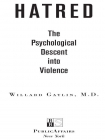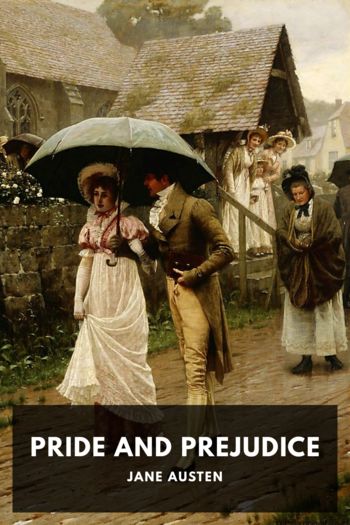Hatred by Willard Gaylin (best manga ereader txt) 📗

- Author: Willard Gaylin
Book online «Hatred by Willard Gaylin (best manga ereader txt) 📗». Author Willard Gaylin
Soon the child learns differently. He begins to perceive an alien environment out there that is essential for his survival, but that seems indifferent or unresponsive to his needs. With that he discovers his own impotence. He can do nothing for himself. He is helpless and dependent. In his mind he has been reduced from the all-powerful to the least fit. Oh, how the mighty has fallen! Despair could be the result. Some early psychoanalysts, Melanie Klein in particular, assumed that there is a normal period of childhood depression during the phase when the child reaches such awareness.
This sense of helplessness is quickly mitigated by the awareness that there are others out there who are strong and can take care of him. The child discovers his caretakers. The first differentiated figure is usually the mother. While the sense of his helplessness is slowly becoming apparent, the perception of her extraordinary power is magnified. In relation to the limited needs of an infant, the mother has godlike powers to satisfy them all. Through this transfer of powers from the self to the other, the infant has unearthed some immense realities that will influence him for the rest of his life: Despite our own limited powers, there are others who can take care of us; one can survive through dependency; others are essential for our survival.
With time, the child learns that the parents have the power not only to give services but also to withhold them. It is in this discriminatory behavior of the parents that the child discovers his relationship to authority. The child learns that parental willingness to care for him is related to the nature of their feelings for him. If they love and approve, they will tend to him. If they are angered and disapprove, they will withhold or even punish. The need to ingratiate the parents—and later all authority figures—will be perceived as an essential, life-and-death matter. We know our helplessness and we exaggerate their power. The child will strive, at least at first, to do that which the parents want. This means subscribing to their values. If generosity pleases them, we will be generous; if selfish pursuit of success is their aim, that will be our original goal.
This concession may seem like further humiliation, but it is truly empowering, for now our fate is back in our own hands. Pleasing the powerful is the next best thing to being powerful. Later the concept of an all-powerful God may emerge, one who can fill the gap left by the growing recognition of the inadequacies of our parents. This gives further evidence to the immense power that invoking “God’s will” can have in motivating human behavior.
What has developed is the sense of an incomplete self that is a part of a community of supporting others whom we may influence. As the child develops, he takes the attitudes and lessons he learned in the family and applies this understanding in building new attachments. He makes friends—and enemies. He finds alternative parental figures in siblings, teachers, religious or political leaders. He builds networks and joins communities. He identifies with heroes other than his parents and with communities other than the family. He becomes a social human being. And all of these new identities and attachments influence his values and modify his perceptions and behavior. His community establishes his standards, sets his goals, and defines his conduct. And finally, his religious community will set the ultimate judgment on his moral worth.
In nineteenth- and twentieth-century Irish families, religious service was a respected tradition. Many families assumed one son would become a priest and one daughter a nun—and often they did. It was a matter of family pride to have a “religious” in the family. It is horrifying to realize that there are religions that may define “religious service” broadly enough to include blowing oneself up while taking as many “enemies” as you can along with you. But when that is the cultural definition of religious service, there will be a multitude of suicide bombers willing to do it and proud families to support it. Certainly, you would not expect a suicide bomber in every family, because that which is required is not a way of life, but death. Still, if the family life is squalid and unrewarding, and if the religion, as in some current Islamic jurisdictions, promises an afterlife rich in the material goods that are denied on earth today, a sufficient number of suicide bombers will be located to serve both the religious and the political agendas.
Since early nurture differs among individuals both qualitatively and quantitatively, the strength of the self varies. There are parents who beat, neglect, or brutalize their children. If the deprivation is sufficiently severe, the child will not survive. Or if he survives, what may emerge is an adult who is deficient in those very humane qualities that shape humankind. The child who is deprived of the proper care to which he is entitled may become an adult incapable of caring for others. It is likely that early scarring, more than genes, destroys the conscience mechanism and produces the psychopaths of our world. Guilt, shame, pride, and love are attributes inherently built into the





Comments (0)